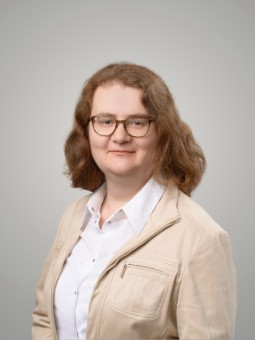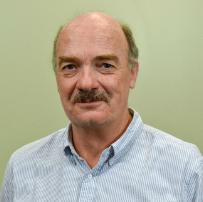ICON 2020: 17th International Conferenceon Natural Language ProcessingDecember 18-21Organized byNLP Association, IndiaAI-NLP-ML Group, Dept. of CSE, IIT Patna |
Quick Links
Welcome to ICON 2020!
Latest Updates
NEW
NEW
Keynote Talks
 Prof. David Yarowsky, John Hopkins University, USA
Prof. David Yarowsky, John Hopkins University, USATitle of the talk: Translingual Learning of 1000+ Languages. Click here for the Recorded Session
BIOGRAPHY: Prof. David Yarowsky is a Professor of Computer Science at Johns Hopkins University and a 25-year faculty member in its Center for Language and Speech Processing. His research interests span many areas of massively multilingual natural language processing, with a particular focus on very low-resource machine translation, computational morphology, cross-language knowledge transfer, lexicon induction, lexical semantics, computational etymology, word sense disambiguation and minimally supervised machine learning. He has served in many leadership roles in the Association for Computational Linguistics, including as co-founder of SIGDAT and EMNLP, ACL executive committee member, multiple general and program chairs, Computational Linguistics editorial board member and ACL treasurer. Dr. Yarowsky is an NSF CAREER Award and Michael C. Rockefeller Fellowship recipient, summa cum laude graduate of Harvard University, ACL Test-of-Time award winner, and is a Fellow of the Association for Computational Linguistics.
 Prof. Iryna Gurevych, Technische Universität Darmstadt, Germany
Prof. Iryna Gurevych, Technische Universität Darmstadt, GermanyTitle of the talk: Let’s Argue – Understanding and Generating Natural Language Arguments Click here for the Recorded Session
ABSTRACT: People love to argue. In recent years, Artificial Intelligence has achieved great advances in modelling natural language argumentation. While analysing and creating arguments is a highly complex (and enjoyable!) task at which even humans are not good, let alone perfect, we describe our natural language processing (NLP) research to identify arguments, their stance and aspects, aggregate arguments into topically coherent clusters, and finally, even to generate new arguments, given their desired topic, aspect and stance. The talk will tell you the story how the ArgumenText project has been conceptualized into a set of novel NLP tasks and highlight their main research outcomes. Argument mining has a tremendous number of possible applications, of which the talk discusses a few selected ones.
BIOGRAPHY: Prof. Iryna Gurevych (PhD 2003, U. Duisburg-Essen, Germany) is a professor of Computer Science and director of the Ubiquitous Knowledge Processing (UKP) Lab at the Technical University (TU) of Darmstadt in Germany. She joined TU Darmstadt in 2005 (tenured as full professor in 2009). Her main research interest is machine learning for large-scale language understanding, including text analysis for social sciences and humanities. She is one of the co-founders of the field of computational argumentation with many applications, such as the identification of fake news and decision-making support. Iryna’s work received numerous awards, e.g. a highly competitive Lichtenberg-Professorship Award from the Volkswagen Foundation and a DFG Emmy-Noether Young Researcher’s Excellence Career Award. Iryna was elected to be President of SIGDAT, one of the most important scientific bodies in the ACL community. She was program co-chair of ACL’s most important conference in 2018, the Annual Meeting of the Association for Computational Linguistics, and she is General Chair of *SEM 2020, the 9th Joint Conference on Lexical and Computational Semantics. In 2020, Iryna has been elected as the ACL VP-elect and selected as an ACL Fellow.
 Prof. Eduard Hovy, Carnegie Mellon University
Prof. Eduard Hovy, Carnegie Mellon UniversityTitle of the talk: From Simple to Complex QA. Click here for the Recorded Session
ABSTRACT: Recent automated QA system achieve some strong results using a variety of techniques. How do complex/deep/neural QA approaches differ from simple/shallow ones? In early QA, pattern-learning and -matching techniques identified the appropriate factoid answer(s). In deep QA, neural architectures learn and apply more-flexible generalized word/type- sequence ‘patterns’. However, many QA tasks require some sort of intermediate reasoning or other inference procedures that go beyond generalized patterns of words and phrases. One approach focuses on learning small access functions to locate the answer in structured resources like tables or databases. But much (or most) online information is not structured, and what to do in this case is unclear. Most current ‘deep’ QA research takes a one-size-fits- all approach based on the hope that a multi-layer neural architecture will somehow learn to encode inference steps automatically. The main problem facing this approach is the difficulty in determining exactly what reasoning is required, and what knowledge resources are needed in support. How should the QA community address this challenge? In this talk I outline the problem, define four levels of QA, and propose a general direction for future research.
BIOGRAPHY: Prof. Eduard Hovy is a research professor at the Language Technologies Institute in the School of Computer Science at Carnegie Mellon University. He also holds adjunct professorships in CMU’s Machine Learning Department and at USC (Los Angeles). Dr. Hovy completed a Ph.D. in Computer Science (Artificial Intelligence) at Yale University in 1987 and was awarded honorary doctorates from the National Distance Education University (UNED) in Madrid in 2013 and the University of Antwerp in 2015. He is one of the initial 17 Fellows of the Association for Computational Linguistics (ACL) and is also a Fellow of the Association for the Advancement of Artificial Intelligence (AAAI). Dr. Hovy’s research focuses on computational semantics of language, and addresses various areas in Natural Language Processing and Data Analytics, including in-depth machine reading of text, information extraction, automated text summarization, question answering, the semi-automated construction of large lexicons and ontologies, and machine translation. In late 2020 his Google h-index was 89, with over 42,000 citations. Dr. Hovy is the author or co-editor of eight books and over 450 technical articles and is a popular invited speaker. From 2003 to 2015 he was co-Director of Research for the Department of Homeland Security’s Center of Excellence for Command, Control, and Interoperability Data Analytics, a distributed cooperation of 17 universities. In 2001 Dr. Hovy served as President of the international Association of Computational Linguistics (ACL), in 2001–03 as President of the International Association of Machine Translation (IAMT), and in 2010–11 as President of the Digital Government Society (DGS). Dr. Hovy regularly co-teaches Ph.D.-level courses and has served on Advisory and Review Boards for both research institutes and funding organizations in Germany, Italy, Netherlands, Ireland, Singapore, and the USA.
Call for Papers
The seventeenth International Conference on Natural Language Processing (ICON-2020) will be held at IIT Patna, India during December 18-21, 2020. The ICON Conference series is a forum for promoting interaction among researchers in the field of Natural Language Processing (NLP) and Computational linguistics (CL) in India and abroad. The main conference is on December 19-20, 2020. This will be preceded by one day of pre-conference tutorials on December 18, 2020 and one day of post conference workshops on December 21, 2020.
Topics |
Call for Tutorials/Workshops
Proposals are invited for pre-conference tutorials/workshops. Tutorials/Workshops can be of half-day or full-day duration. The proposal should be presented in the form of an extended abstract (1-2 pages) as per the ICON 2020 template (ACL template). This should contain a topical outline of the content, description of the proposers and their qualifications relating to the tutorial content.
Proposals for Tutorial/Workshop can be submitted at this link. Send tutorial/workshop proposals to the ICON-2020 Secretariat by email to icon2020ainlpml@gmail.com. For further information, please refer to the Conference URL or contact the ICON-2020 Secretariat.
Call for Doctorial Consortium
The ICON organising Committee pleased to call for papers for the 2nd Doctoral Consortium. This event extends an opportunity for doctoral candidates to present and discuss their research with a panel of experts. The discussion would include a feedback on the evolution and progress of their research. It also helps them to identify the roadmap and additional studies, which could help refine the shape of their doctoral thesis. The doctoral consortium will be a one-day or half day event being organised on December 21, 2020, as part of the ICON-2020 conference at the Indian Institute of Technology Patna (IIT Patna). The applicants are required to submit a two-page extended abstract of their PhD research work. Submit your abstracts at this link. The shortlisted candidates would be invited to the consortium where they are required to present a summary of their research. Each candidate will be given 30 minutes for the presentation, which will be followed by a discussion of 15 minutes, led by a panel of experts. Prospective doctoral students from language technologies related disciplines are invited to apply. The selection of participants will be based on the submitted abstracts.
Guidelines
The invitation is open to all participants of ICON 2020. The applicants are required to submit an extended two-page abstract on their ongoing doctoral research. The submission can be extended to a maximum of two pages including all text, figures and tables, plus an additional third page exclusively for references. The submissions must follow the ICON template provided in the author's kit.The abstracts may incorporate published and in-progress work from the authors. Submissions are expected to present a fair picture of the research undertaken towards the thesis. Participants are advised to refrain from submitting a shorter version of their conference papers. Submissions must have the participant as the sole author. Acknowledgements to their supervisors, supporting agencies/bodies, and contributors to thework, can be made in a separate section.
The submission must highlight the following: The motivation of the research; Key issues identified/addressed; Major contributions; Methodologies, Experiments; Discussion of results; Future plans and Roadmap for the thesis.
Important Dates
| Event | Date |
|---|---|
|
Workshop Proposal Submission |
|
|
Workshop Acceptance Notification |
|
|
Paper Submission Deadline |
|
|
Doctoral Consortium Deadline |
|
|
Tutorial Proposal Submission |
|
|
Tutorial Acceptance Notification |
October 30, 2020 |
|
Paper Acceptance Notification (Long and Short) |
|
|
Paper Acceptance Notification (Doctoral Consortium) |
|
|
Camera Ready Paper Submission |
December 7, 2020 |
|
Conference |
December 18-21, 2020 |

